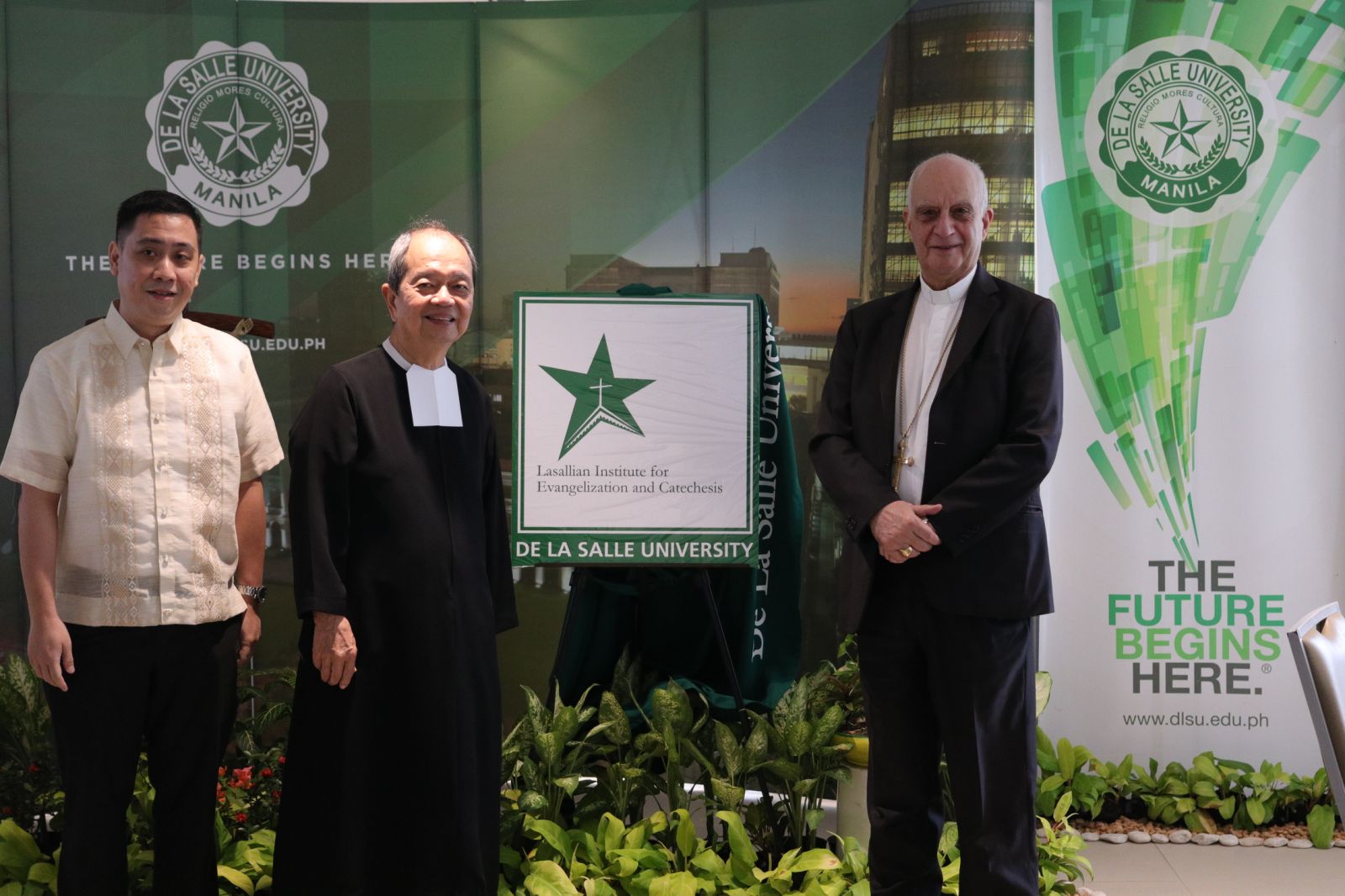Lasallians in Manila re-launch their centre for catechists
Renamed the 'Lasallian Institute for Evangelisation and Catechesis', it has been training religion teachers for public schools in the capital and other areas of the country since 1952. Archbishop Fisichella praised its commitment "in the development of leadership in catechesis and faith education".
Manila (AsiaNews) - The De La Salle Catechetical Centre in Manila, founded in 1952 by Br Andelino Manuel Castillo to train teachers of the faith capable of evangelising young people in the capital's government schools, changed its name a few days ago. It is now called Lasallian Institute for Evangelisation and Catechesis.
"Beyond a simple name change," said Br Armin Luistro, a Filipino, Superior General of the Brothers of the Christian Schools, an Institute born in France and arrived in the Philippines in 1922, at the inauguration hosted by De La Salle University in Manila, "it marks a new direction for the Centre in the light of the principles set out in the Directory for Catechesis.
The emphasis on evangelisation and catechesis, values that underpin the Institute's educational activities, is an opportunity to return to the origins of the charism, to what is "the legacy of John Baptist de La Salle," the founder, Luistro said, recalling that "the existence and teaching of the Brothers is an essential component of the Church's evangelising mission. Also present at the event was Archbishop Rino Fisichella, pro-prefect of the section for fundamental questions of evangelisation in the world of the Dicastery for Evangelisation.
Fisichella recalled the centrality of the ministry of catechism in the mission of the Church, recalling the documents of the Directory and the apostolic letter "Antiquum ministerium". He then expressed appreciation for the work carried out by the Lassalian Brothers present in the Philippines, defined by the pro-prefect as "catechetical experts", especially in light of their commitment and dedication "in evangelization and in the development of leadership in catechesis and education to faith."
Since 1952 the Center has pursued the objective of providing religious education to children enrolled in public schools. In the early days the mission consisted of offering assistance and catechesis to poor and disadvantaged people, following the vocation of the Brothers of the Christian Schools.
At the beginning it was Bro. Castillo to involve 29 catechist students from high school and university departments, which soon became around one hundred. After an initial phase of experimentation, a more structured proposal followed in 1957, defined by Castillo as "essential", from which the figures of "professional catechists" emerged.
A method was developed in synergy with public school administrators in order to train full-time religious education teachers. The initial difficulties were mainly financial. A number of charitable organisations affiliated with the university came to the rescue, raising funds for the project.
In addition, parish priests also contributed a portion of the salaries of catechists employed in their parishes and neighbouring public schools. Today, there are 16 public schools and parishes in the Diocese of Paranaque and the Archdiocese of Manila where the Centre offers its services.
These activities continue even after the name change: they consist of research, pastoral workshop work and the continuous development of leaders in pastoral ministries. Director Lysander Rivera is convinced that 'the Church today needs compassionate, competent and committed teachers of religion.
The mission is to meet young people in schools in more developed areas, but also in rural areas. Not only in the Philippines, but throughout Asia, driven by the Church's 'vocation to explore new ways and creative ways of sharing the Gospel,' Rivera continues. In the Southeast Asian country, this is already happening.
Here "the Brothers of the Christian Schools have been dedicating themselves to the charism of their founder of teaching minds, touching hearts and changing lives, for more than a century", stated Br. on the occasion of the inaugural ceremony. Raymundo Suplido, president of the University.
07/02/2019 17:28







.png)










